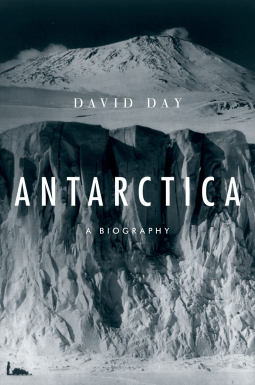
Antarctica
A Biography
by David Day
This title was previously available on NetGalley and is now archived.
Buy on Amazon
Buy on BN.com
Buy on Bookshop.org
*This page contains affiliate links, so we may earn a small commission when you make a purchase through links on our site at no additional cost to you.
Send NetGalley books directly to your Kindle or Kindle app
1
To read on a Kindle or Kindle app, please add kindle@netgalley.com as an approved email address to receive files in your Amazon account. Click here for step-by-step instructions.
2
Also find your Kindle email address within your Amazon account, and enter it here.
Pub Date Jun 03 2013 | Archive Date May 12 2013
Description
Since the first sailing ships spied the Antarctic coastline in 1820, the
frozen continent has captured the world's imagination. David Day's
brilliant biography of Antarctica describes in fascinating detail every
aspect of this vast land's history--two centuries of exploration,
scientific investigation, and contentious geopolitics.
Drawing from archives from around the world, Day provides a sweeping, large-scale history of Antarctica. Focusing on the dynamic personalities drawn to this unconquered land, the book offers an engaging collective biography of explorers and scientists battling the elements in the most hostile place on earth. We see intrepid sea captains picking their way past icebergs and pushing to the edge of the shifting pack ice, sanguinary sealers and whalers drawn south to exploit "the Penguin El Dorado," famed nineteenth-century explorers like Scott and Amundson in their highly publicized race to the South Pole, and aviators like Clarence Ellsworth and Richard Byrd, flying over great stretches of undiscovered land. Yet Antarctica is also the story of nations seeking to incorporate the Antarctic into their national narratives and to claim its frozen wastes as their own. As Day shows, in a place as remote as Antarctica, claiming land was not just about seeing a place for the first time, or raising a flag over it; it was about mapping and naming and, more generally, knowing its geographic and natural features. And ultimately, after a little-known decision by FDR to colonize Antarctica, claiming territory meant establishing full-time bases on the White Continent.
The end of the Second World War would see one last scramble for polar territory, but the onset of the International Geophysical Year in 1957 would launch a cooperative effort to establish scientific bases across the continent. And with the Antarctic Treaty, science was in the ascendant, and cooperation rather than competition was the new watchword on the ice. Tracing history from the first sighting of land up to the present day, Antarctica is a fascinating exploration of this deeply alluring land and man's struggle to claim it.
Drawing from archives from around the world, Day provides a sweeping, large-scale history of Antarctica. Focusing on the dynamic personalities drawn to this unconquered land, the book offers an engaging collective biography of explorers and scientists battling the elements in the most hostile place on earth. We see intrepid sea captains picking their way past icebergs and pushing to the edge of the shifting pack ice, sanguinary sealers and whalers drawn south to exploit "the Penguin El Dorado," famed nineteenth-century explorers like Scott and Amundson in their highly publicized race to the South Pole, and aviators like Clarence Ellsworth and Richard Byrd, flying over great stretches of undiscovered land. Yet Antarctica is also the story of nations seeking to incorporate the Antarctic into their national narratives and to claim its frozen wastes as their own. As Day shows, in a place as remote as Antarctica, claiming land was not just about seeing a place for the first time, or raising a flag over it; it was about mapping and naming and, more generally, knowing its geographic and natural features. And ultimately, after a little-known decision by FDR to colonize Antarctica, claiming territory meant establishing full-time bases on the White Continent.
The end of the Second World War would see one last scramble for polar territory, but the onset of the International Geophysical Year in 1957 would launch a cooperative effort to establish scientific bases across the continent. And with the Antarctic Treaty, science was in the ascendant, and cooperation rather than competition was the new watchword on the ice. Tracing history from the first sighting of land up to the present day, Antarctica is a fascinating exploration of this deeply alluring land and man's struggle to claim it.
Available Editions
| EDITION | Hardcover |
| ISBN | 9780199861453 |
| PRICE | $34.95 (USD) |



